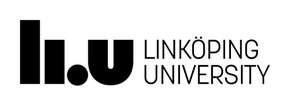Ageing and Social Change

Do you want to contribute to the sustainability of an ageing society and the well-being of an ageing population? Then this is your master’s programme. You can choose either on-campus learning or distance learning with on-campus periods each year.
The Ageing and Social Change Studies master’s programme (60/120 credits) is a second cycle programme that leads to a Master’s degree with Ageing and Social Change as the main field of study. The programme educates a next generation of managers, advisors, policy makers, experts and researchers in Sweden, Europe and beyond, and it enables graduates to generate impact in various key fields of the society. It opens professional perspectives in research, policy, and practice for its graduates, and it emphasizes the increased internationalisation of scopes and competences. The programme graduates are prepared for professional careers working with various aspects from running policy programmes to scientific research.
Ageing is one of the key issues in today’s changing societies, which requires more research-based understanding as well as knowledge for adequate policies. The Ageing and Social Change Studies master’s programme offer students the needed skills for both. Ageing and Social Change Studies relate individual and population ageing to overall social, economic, political, and cultural change, to new structures of inequality and policies addressing them. The specific focus on interdependencies of policies, welfare institutions, populations’ dynamics and individual lives is at the heart of this programme, which takes a broad and integrated social science perspective on contemporary changing ageing societies. This programme is momentous regarding its degree of internationalisation and multidisciplinarity, and sustainable in its hybrid structure based on digital and web-based learning, involving a fusion of onsite and distance learning.
Na studia magisterskie mogą kandydować wszyscy, którzy ukończyli studia licencjackie lub inżynierskie (studia I stopnia), studia magisterskie lub studiują na ostatnim roku studiów I-stopnia. Studia, które planujesz powinny mieć zbliżony profil do tych obecnych lub ukończonych, ponieważ w procesie rekrutacji kluczowa jest ich zgodność programowa.
- Wykaz punktów ECTS – osoby, które są jeszcze w trakcie studiów, muszą załączyć wypis punktów ECTS, w którym będzie wykazane, jakie przedmioty były realizowane na studiach oraz ile punktów za nie otrzymano.
- Dyplom ukończenia studiów licencjackich lub inżynierskich – jeśli jesteś absolwentem wyższej uczelni, nie potrzebujesz wypisu, wystarczy załączyć dyplom ukończenia studiów wraz z suplementem (oryginał z tłumaczeniem przysięgłym)
Spełnienie wymagań w zakresie języka angielskiego można udokumentować w następujący sposób:
- IELTS - 6.5 (minimum 5.5 z każdej części) lub
- TOEFL – 90 (w tym minimum 20 z pisania). Wynik musi zostać przesłany na uczelnię bezpośrednio z centrum egzaminacyjnego.
*Wymagania językowe mogą się zmieniać i różnić w zależności od kierunku - przed aplikacją sprawdź wymagania bezpośrednio na stronie uczelni.
Entry requirements
- Bachelor's degree
- At least 5 ECTS credits passed in Method
- At least 5 ECTS credits passed in Social Sciences
- English corresponding to the level of English in Swedish upper secondary education (Engelska 6)
Selection Groups
Selection will be based on academic merits.
Generate social impact
Regardless of whether you are about to start a career or to further develop your professional expertise, the programme will offer you the ability to generate social impact. You will be well-prepared for a professional career in either the public or the private sector, and for further studies and research at PhD level and beyond. The Ageing and Social Change master’s programme will lead you, and your fellow students, to become the next generation of managers, advisors, decision-makers, experts, and researchers.
